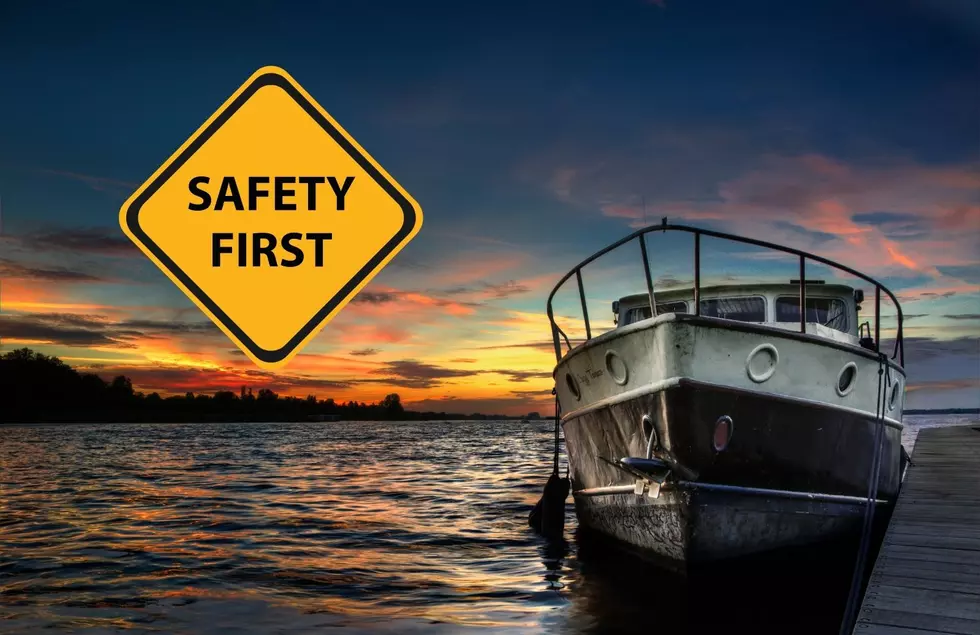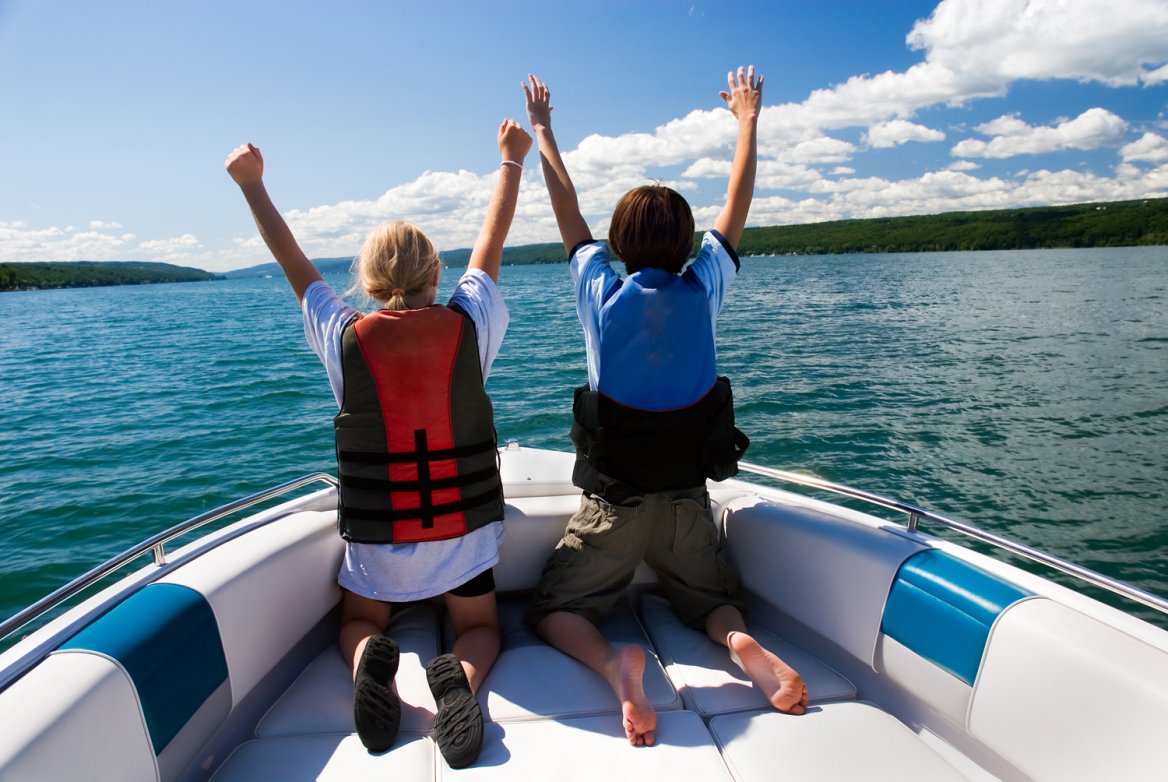A Comprehensive Guide to Boating Laws in Ohio. Boats are required to carry specific safety equipment as per state and federal regulations. This typically includes life jackets for all passengers, fire extinguishers, visual distress signals (flares or other approved devices), sound-producing devices (horn or whistle), and navigation lights for boats operated at night. Additional safety equipment might be required depending on the size and type of watercraft.
Boating can be an exhilarating and enjoyable experience, but it comes with responsibilities. Understanding and adhering to boating laws is crucial for your safety and for preserving Ohio’s beautiful waterways.
A bright sunny day, gentle waves caressing the boat, and the cool breeze against your face as you sail across the pristine waters of Ohio.
In this blog post, we’ll delve into the essential boating laws in Ohio.

Ohio Boater Education Requirements
If you plan to operate a watercraft in Ohio, you must know the state’s boater education requirements. Ohio law mandates that anyone born on or after January 1, 1982, must complete a boating education course approved by the National Association of State Boating Law Administrators (NASBLA) before they can operate a boat with an engine greater than ten horsepower. This includes personal watercraft like jet skis as well.
Registration and Titling
All motorized watercraft, including sailboats, must be registered and titled with the Ohio Division of Parks and Watercraft. Registration involves providing information about the vessel and paying the necessary fees. It’s essential to correctly display the registration number and expiration decals on the boat as specified by Ohio law.
Operating Under the Influence (OUI)
Boating under the influence of alcohol or drugs is strictly prohibited in Ohio. The state has laws similar to driving under the influence (DUI) for operating watercraft. The legal blood alcohol content (BAC) limit for operating a boat in Ohio is 0.08%. Penalties for violating OUI laws can include fines, suspension of boating privileges, and even imprisonment.
Speed Limits and No Wake Zones
Speed limits are imposed on certain areas to ensure the safety of all waterway users. Additionally, “No Wake Zones” are designated places where boats must travel at idle speed to prevent damage to property or wildlife. Be vigilant and follow speed limit signs and regulations to avoid accidents and protect the environment.

Life Jackets and Safety Equipment
Having appropriate safety equipment on board is not only wise but also legally required. Ohio law mandates that all boats have a U.S. Coast Guard-approved life jacket for each person on board. Children under ten must wear a life jacket while the vessel is underway. Additionally, boats must carry other essential safety equipment, including fire extinguishers, visual distress signals, and sound-producing devices.
Accidents and Reporting
In the unfortunate boating accident involving injury, death, disappearance, or property damage exceeding $2,000, the operator must file an accident report with the Ohio Division of Parks and Watercraft. It is crucial to provide accurate and timely information to authorities to ensure proper investigation and assistance if needed.
Aquatic Invasive Species (AIS)
To protect Ohio’s water bodies from invasive species that can harm the ecosystem, boaters must take preventive measures. Before leaving the water access area, boaters must remove aquatic plants or animals from their watercraft and equipment. Furthermore, boaters should drain all water from their boats and equipment, as many invasive species can be transported in water.
Youth Operation Restrictions
Ohio law specifically restricts the age at which children can operate watercraft. Children under 12 cannot use any motorized vessel, even with adult supervision. Those between the ages of 12 and 15 can operate watercraft with an engine size of more than ten horsepower only if they have completed an approved boater education course.

Frequently Asked Questions(FAQs)
Do I need a license to operate a boat?
In many states, including Ohio, a boating license is not required. However, boater education and safety courses may be mandatory for certain age groups, particularly those born after a specific date. You must check your state’s boating laws and requirements to determine if you must complete a boating education course before operating a boat.
Are life jackets required for everyone on board?
In most jurisdictions, including Ohio, state law mandates that everyone aboard a boat must have a U.S. Coast Guard-approved life jacket. Additionally, children under a certain age (often ten years old) must always wear life jackets while the boat is underway. It’s crucial to have the appropriate-sized life jackets for all passengers and ensure they are in good condition and readily accessible.
Can I operate a boat under the influence of alcohol or drugs?
Boating under the influence (BUI) is illegal in all states, just like driving under the influence (DUI). Operating a boat while impaired by alcohol or drugs is dangerous and subject to severe penalties, including fines, suspension of boating privileges, and even imprisonment. It’s best to designate a sober operator if alcohol is consumed while boating.
Do I need to register my boat?
Most states require the registration and titling of motorized boats, including personal watercraft. Registration involves providing information about the vessel, paying the required fees, and displaying the registration numbers and decals on the boat as per state regulations. Sailboats and certain smaller boats might be exempt from registration requirements, but it’s essential to check with your state’s boating authorities.
Are there speed limits on waterways?
Yes, speed limits are enforced on many waterways, especially in congested areas, near docks, marinas, and swimming areas. It’s essential to be aware of posted speed limit signs and abide by them to ensure the safety of all watercraft users and protect the environment from potential damage caused by high speeds.
What should I do in case of a boating accident?
If you’re involved in a boating accident that results in injury, death, disappearance, or significant property damage, it must be reported to the appropriate authorities as required by state law. In such cases, you should stay at the scene, aid those in need, and exchange necessary information with other involved parties. Contact your state’s boating law enforcement agency to report the incident promptly.
Myths About boat
- Boating laws regarding the minimum age for boat operation can vary from state to state.
- In some states, children under a specific period cannot operate motorized vessels. In contrast, others might have age restrictions with certain conditions, such as completing a boater education course.
- It’s crucial to know and comply with the age restrictions in your state before allowing your children to operate a boat.
Conclusion
Boating in Ohio offers a wonderful opportunity to connect with nature and create lasting memories with family and friends. However, it is essential to navigate the waterways responsibly by understanding and adhering to Ohio’s boating laws.
Educating yourself about the regulations, safety measures, and environmental considerations will ensure a fun boating experience and contribute to preserving Ohio’s beautiful water resources for generations to come.
So, grab your life jacket, familiarize yourself with the laws, and embark on an adventure-filled journey across Ohio’s mesmerizing waters!
Remember, boating laws can differ significantly from state to state, so it’s essential to familiarize yourself with the specific regulations in your area. Always prioritize safety, follow the rules, and responsibly enjoy your time on the water!

